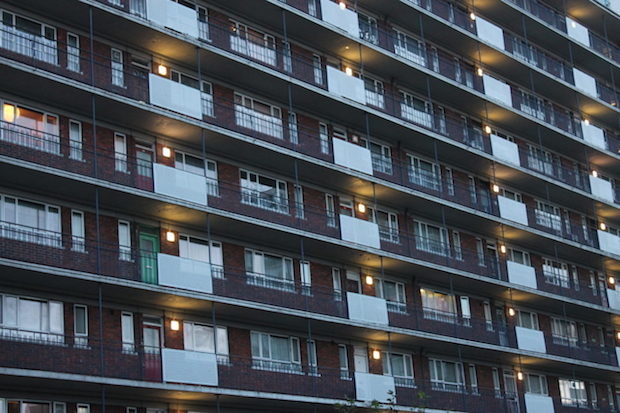UK's richest county hit by £100m cash crisis. Council tax hikes planned across England. These are just some of the stories that made headlines last week, in light of a recent investigation by the Bureau Local at the Bureau of Investigative Journalism.
The Bureau Local, a collaborative UK network set up last year to pursue local accountability reporting through data and investigative techniques, has more than 600 members, and it launched its council budgets investigation back in December.
The budget data made available by each of England's 353 local councils is spread across individual websites, often as unsearchable PDFs, so Gareth Davies, one of the Bureau's reporters, aimed to centralise it in a large spreadsheet of the cuts and spending proposals planned in various local authorities.
The team then asked the public to help them dig into the data to paint a picture of how the changes would impact communities, from council tax prices going up to children's services suffering due to the cuts, ahead of the government's next set of funding decisions set for March.
On 3 February, the Bureau Local held a hack day in London, Leeds, Newcastle, Manchester and Coventry. Hosts included the BBC, Coventry University, Goldsmith's University and Newcastle University's Civic Journalism Lab, and partners such as Data Unlocked, Open Data Manchester and Open Data Institute Leeds joined the project to help participants with technical questions and tasks on the day.
More than 160 people from different backgrounds and levels of expertise participated in the five chapters of the hack, and the Slack group set up to discuss the data and share story leads had almost 200 people active throughout the day.
On the morning of the hack, the data was released to the participants together with a reporting recipe, a guide put together by the team to help people navigate the spreadsheet and better understand what to look for.
"Our project is about trying to understand and contextualise what's happening," Megan Lucero, director of the Bureau Local, told Journalism.co.uk in a recent podcast.
"I think the important part for us to bring to this community gathering is that journalism isn't about the what, it's about the why. Why is this happening, why are these pressures facing these councils, how are these councils making decisions and what's going to happen off the back of that – what services are going to stop or continue?
"The hack day was just the beginning, it was about making [the data] available and bringing everybody together, and now that people are equipped, they can go away and really start to dig into that."
This is the second hack day the Bureau Local has held since its launch last year, and the structure and approach was slightly different to the first collaborative event they organised ahead of the 2017 UK election, when they worked alongside 65 people in Birmingham, Bournemouth, Cardiff, London and Glasgow to investigate voter power.
Participants in each location were grouped according to skillsets and interests this time, and unlike the previous event, the results of the hack also included other elements alongside the traditional stories, Lucero said, such as tools built to help journalists and the public interrogate the data.
Story leads on council finances and cuts to children services - by region.
— Megan Lucero (she/her) 🏳️🌈 (@Megan_Lucero) February 13, 2018
Dig in! 🔎 #opendata #ddj #localgov https://t.co/hC17SCfjQW
"The first hack day we ran was very much 'let's get the story out quickly, it's the election, people need to see that'. There will be lots of stories that come out, but because it's much more based on a community and civic journalism project (...) there was a sort of immediacy to it.
"It wasn't an act of journalism where you're reading an article or watching a documentary, it was about being a member of the public just having a look at the finances and understanding right then and there, learning something. It's just a very different expression of how journalism can reach and touch different communities."
The main challenge for the project, which ended up not materialising, was whether the data was going to prove too difficult for people to understand, particularly for those who did not have a strong interest or background in finance.
"It was bold of us to bring it to a hack day when maybe we could've done something on air pollution, or something just as important but in a simpler format, but I think the challenge was worthwhile.
"Ultimately, journalism is a cultural force for good, and I think this also allows people to be a bit more open to it at the moment. You can commit an act of journalism by sitting through and helping out with whatever skillset you have, because you're trying to unearth something that's important and relevant to people in your community."
Listen to the full podcast with Lucero here.
Free daily newsletter
If you like our news and feature articles, you can sign up to receive our free daily (Mon-Fri) email newsletter (mobile friendly).
Related articles
- Newsrewired speaker spotlight: Oliver Rouane-Williams, founder of Ipswich.co.uk
- How journalists can cover LGBTQ+ stories, with Enrique Anarte Lazo of Context
- Understanding and serving the neurodiverse community, with Nick Ransom
- Michael MacLeod, founder of The Edinburgh and London Minute, on growing a curated, community newsletter
- Covering the climate community, with Waqas Ejaz of the Reuters Institute












